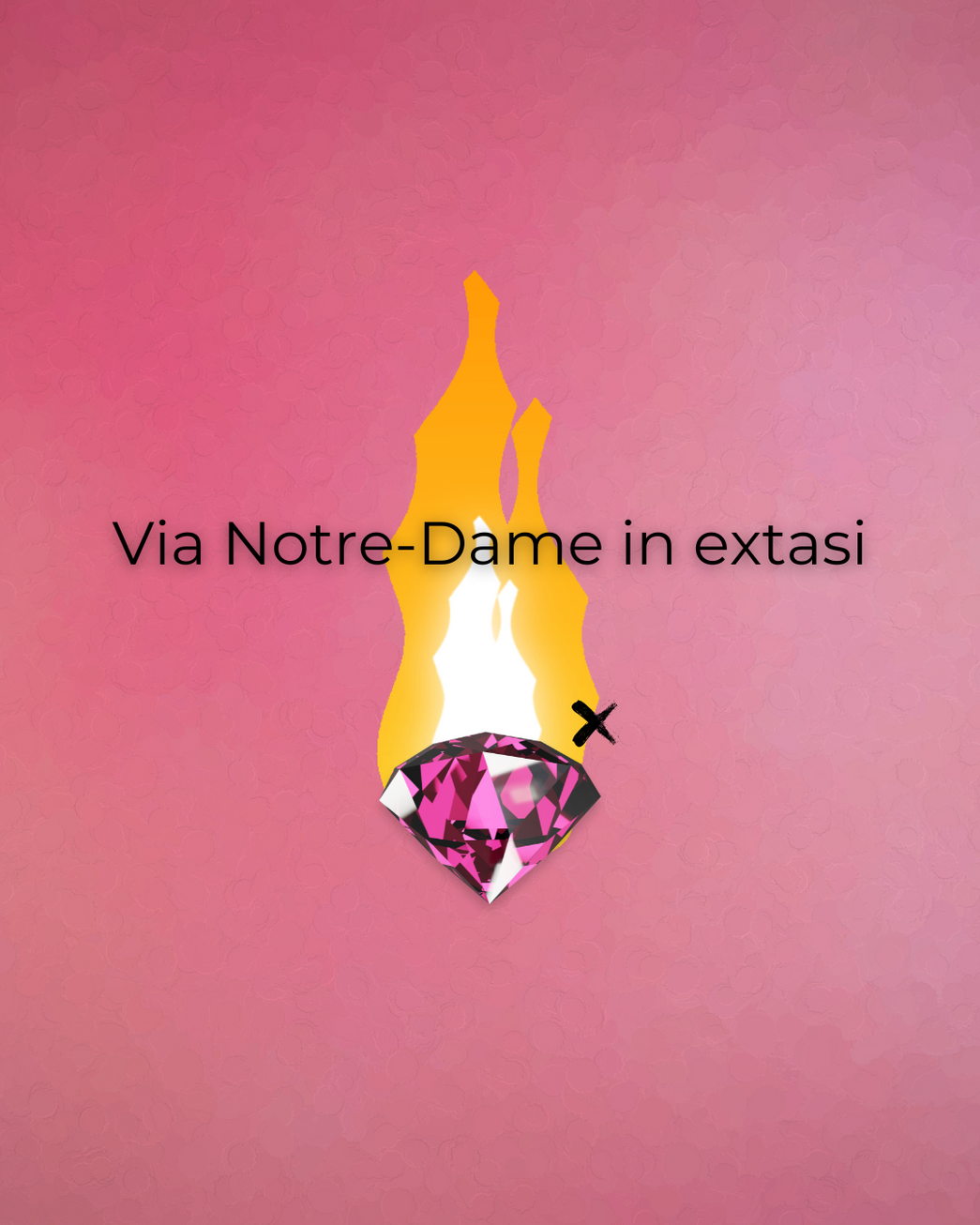What I Never Said, Still Burns: Via Notre-Dame in Extasi by Mad Lips 21
- Apr 10, 2025
- 3 min read

A Poem That Refuses to Wake
Some poems do not ask to be read. They ask to be entered, quietly—like a room in a dream, still warm from what was almost real. Via Notre-Dame in Extasiâ is one of them. Written first in French and then adapted into English, the poem holds together what can’t quite be named: the ache of a love never lived, yet fully known.
The Setting Is Real, But the Fire Is Imagined
The poem moves through Rue Notre-Dame in Montreal, where the present is touched by something intangible. The narrator walks the street with deliberate stillness. She passes Café Barbara and sees two people in love. They do not speak to her, but they awaken something that was always there: a desire not for a past moment, but for one that never came.
This is not a memory. It is a fantasy—precise, constant, and unfinished. There is no loss, because nothing was ever hers. And yet, she carries it as if it were.
Carnet 03: A Place to Leave What Has No Name
The poem was created as part of Carnet 03, an initiative from Maison de la culture Marie-Uguay. Hundreds of blank notebooks were sent into the city and returned filled with art, stories, and confessions. Only a small number held poetry. Via Notre-Dame in Extasiâ was one of them.
The project wasn’t about polish or performance. It was an invitation to speak without permission. For Mad Lips 21, this poem became a way to voice something that had never reached the surface—a name not spoken, a feeling never claimed, a longing that never asked for permission to exist.
The Language of Contained Fire
This poem doesn’t demand attention. It waits. It listens. The narrator does not weep or declare. She notices: a flicker in a café window, the thought of a hand, a breath on skin that’s never been touched. Every image is drawn with care, as if even imagining it risks waking the world too soon.
This is not a poem about what happened. It is a poem about what might have been. And somehow, that makes it burn more quietly—and more deeply.
From French to English: Still Dreaming in Both Tongues
The French version is formal, lyrical, and contained. It respects the silence it moves through. The English version adds a rhythm of rhyme, but keeps the breath of the original. Phrases like “My embered soul, confined and tight” and “Your scent, a ghost in morning’s veil” give form to something that remains untouchable, suspended between thought and skin.
The title combines French and Latin. “Via” is the road. “Notre-Dame” is both street and symbol—of the sacred, the feminine, the unreachable. “In Extasiâ” echoes the Latin root of ecstasy, adapted here in a stylized poetic form. It does not suggest a climax, but an unfinished state. Not resolution, but intensity. A kind of rapture that leaves you awake in the dark, still burning.
A Poem for What Was Never Held
There is no ending in Via Notre-Dame in Extasiâ. There was never a beginning. The woman walks. The thought of him—of love, of closeness—remains unspoken, but close. The fire is not memory. It’s potential. And it still glows beneath every step.
Some poems are written to make sense of something. This one was written because the feeling never left. It needed a place to exist. This poem gave it that place.










Comments